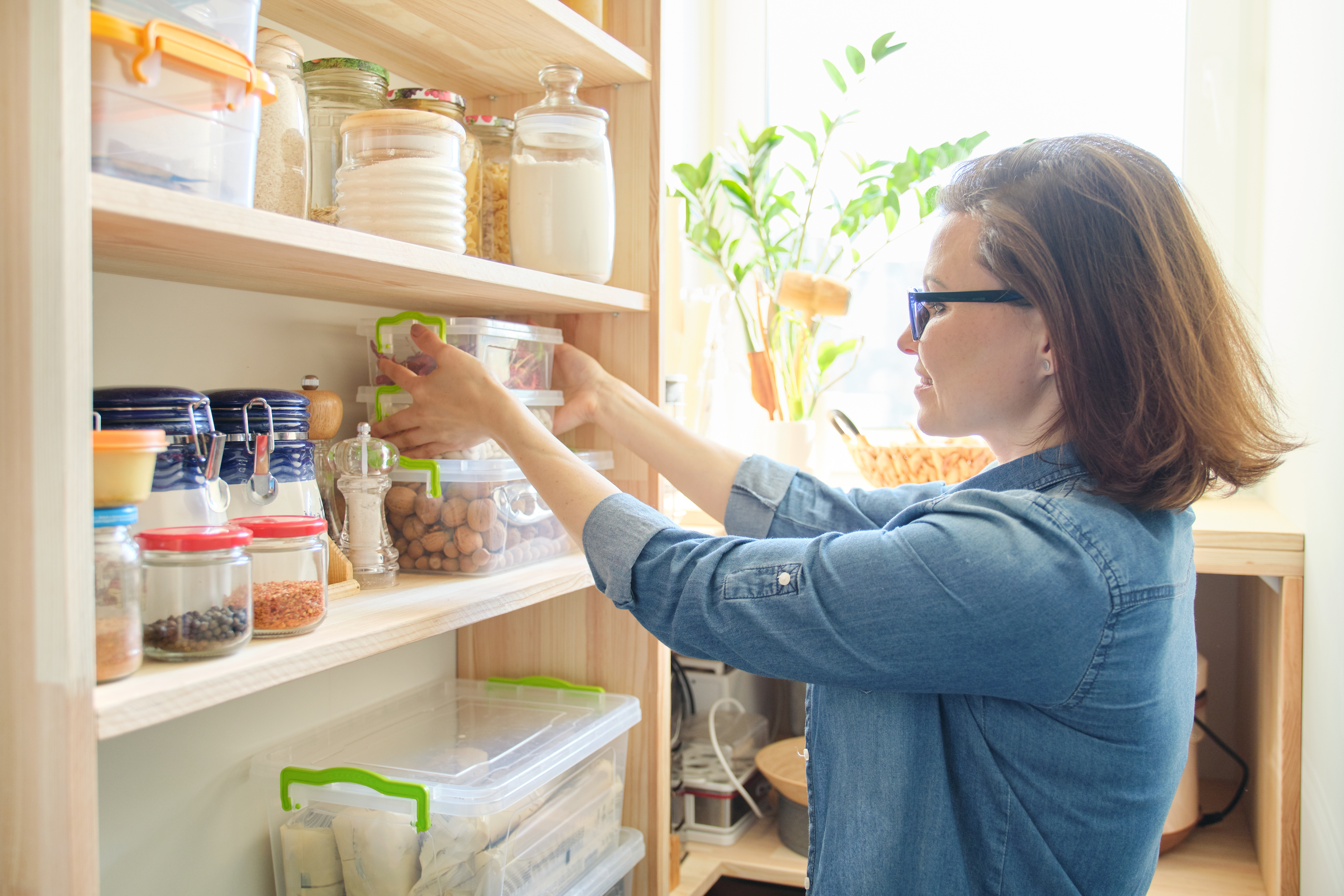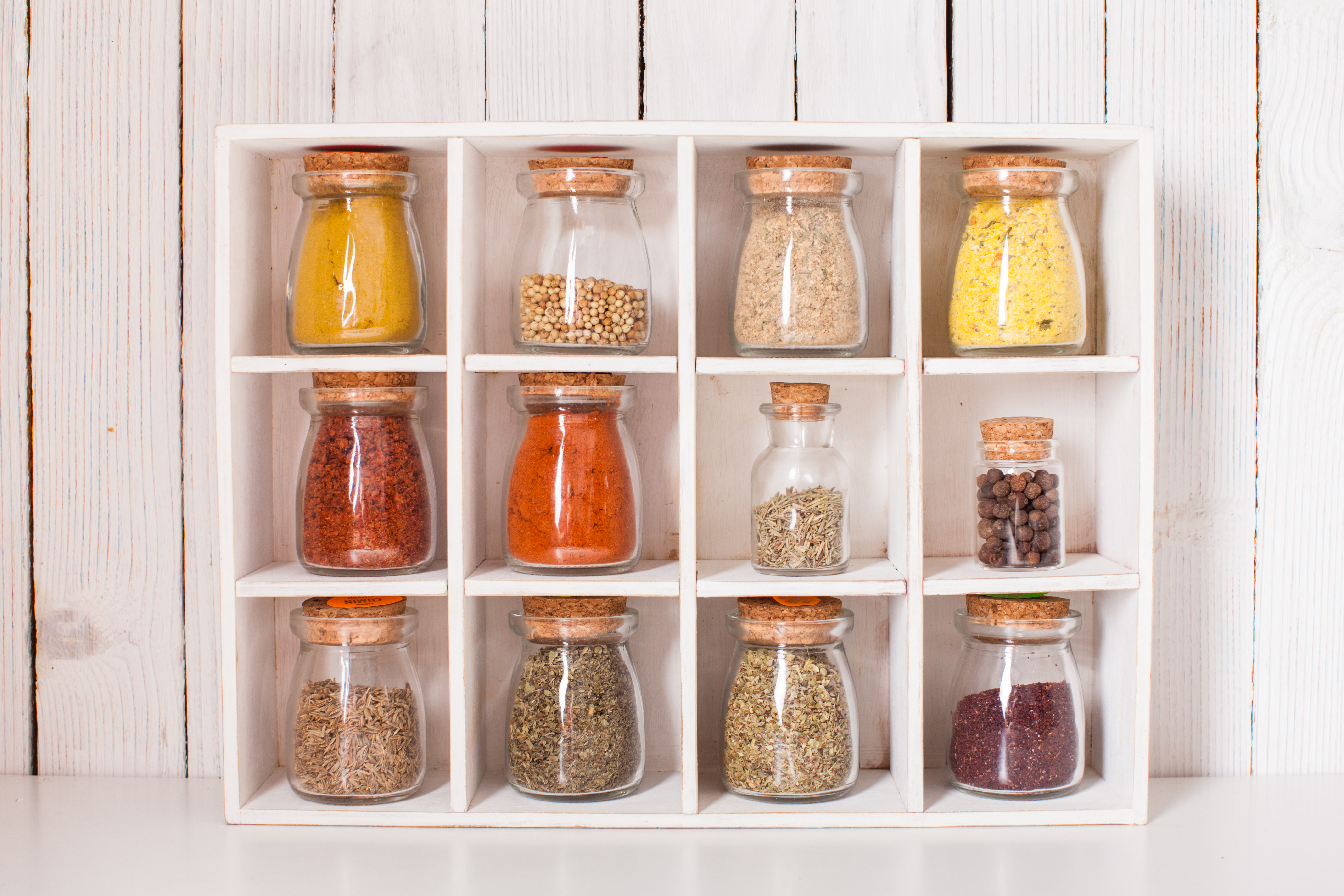Free digital copy
Get Speciality Food magazine delivered to your inbox FREE
Get your free copy
A well-stocked pantry must be the most valuable resource in any home cook’s kitchen. Its contents ranging from everyday essentials such as oils, salt and pepper to spices, seasonings and flavour-packed pastes that can transform a dish in moments, the store cupboard is a one-stop-shop when it comes to making homemade dishes sing.
The magic of store cupboard products lie in their ability to be simultaneously comforting and exciting, offering everything you need to whip up a delicious dish for loved ones as well as the adventure of trying punchy new flavours. Fancy Italian-inspired pasta with a rich sundried tomato, red pepper and oregano sauce? On the table in 20 minutes thanks to your pantry. Or a spicy, peanutty ramen full of Eastern promise? See you in 10.
Convenience is the name of the game. Flavour-packed seasonings and pre-chopped garlic, ginger and chillies allow customers to rustle up all manner of dishes without spending valuable time on prep, and pastes promising full-on flavours all in one place mean that shoppers can experiment with adventurous foods – as well as family favourites – in far less time than if they had to chop, grind and whizz each ingredient themselves.

Of course, a sector so wide-ranging is constantly changing shape, and with a decades-long history RH Amar has long been a go-to for retailers seeking high quality store cupboard stockers. “RH Amar was founded almost 80 years ago, and during that time store cupboard ingredients have changed so much but yet there also remains much reassuring familiarity,” begins Justin Burbage, commercial director. “There are still the much-loved store cupboard stalwarts, the workhorses we rely on daily, but they now share the space with an ever-changing roster of exciting trend-led ingredients.”
The store cupboard is an exciting place to be, says Justin. “We’ve seen the store cupboard transform from the poor relation to star player in the kitchen, with shoppers’ eyes opened to the quality, variety and innovation that exists.”
The recognition from fine food consumers that it’s worth investing in better ingredients, as well as the constant innovation within ambient products, has benefited the fine food sector. “There’s been significant premiumisation, with consumers opting for higher-end brands, like Mutti, for staples such as tinned tomatoes. The breadth of the category has also expanded, helped by kitchen design trends where pantries and store cupboards have been given more space, helping to boost the category’s appeal and growth,” says Justin.

With younger customers increasingly using social media as a resource for meal ideas, and inspiration from around the world abound, the plethora of ambient pastes and seasonings on offer in the UK is allowing customers to expand their culinary portfolio with minimal effort. Gochuchang, a red pepper paste popular in Korean cuisine, is now a pretty familiar item on ingredients lists despite being relatively unheard of just a few short years ago – its rise no doubt aided for the social media trend for Korean food, particularly sweet and spicy gochuchang-smothered chicken wings.
“Social media has provided a world-wide view into delicious ingredients which we are lucky enough to be able to supply,” says Justin. “It has also helped bring in a younger demographic to the speciality food space, who appreciate how these ingredients offer both quality and flexibility and allow them to experiment with global flavours.”
“In 2024, fine food shoppers are seeking more than just convenience – they want products that align with their values and offer a gourmet experience. This means a focus on sustainability, transparency in sourcing, and an emphasis on health-conscious ingredients without sacrificing flavour,” says Tim Hillgarth, founder of The Saucerer, a brand of premium stir-in pasta sauces.
Traditionally, ready-made pasta sauces have been largely the preserve of supermarkets, with big brands taking up all the space on shelves with largely unexciting lines. Thankfully, the fine food sector is now forging its own path, with innovative brands like The Saucerer bringing high quality and punchy flavour to indies. “Being a stir-in brand, luxury convenience is what we’re about.
Our range is designed for foodies who seek quality, creativity and bold flavours.” The range is versatile, too – another tick for inventive but time-poor shoppers. “We like to go beyond pasta,” says Tim. “Our chorizo sauce goes well on a focaccia with goats’ cheese, hot honey and basil for example. Meanwhile, our aubergine and harissa goes well if you dollop it into your baked egg.”

With many products offering long shelf lives, versatility and multiple uses per unit, the store cupboard offers value for money and it’s important to provide customers with a considered balance of practicality and innovation, all at a justifiable price. “It’s essential to get the store cupboard basics right,” agrees Justin. “Consumers want value, but they understand that it’s not just about price, value is also delivered through exceptional quality. Shoppers are seeking top-tier staples, whether it’s tinned tomatoes or pasta, that offer value through the quality and taste they deliver.”
“Kitchen ingredients need to work hard to justify their place on the kitchen shelf and this is where this category really comes into its own as so many store cupboard products can be used across many different dishes and occasions, but we need to work hard to communicate this,” Justin continues.
“In these challenging times the country has been going through, traditional store cupboard items like canned foods, in particular canned beans and pulses have become even more appealing to consumers as they are cost efficient, have longer shelf lives, limit wastage and align with demand for natural plant-based protein sources,” says Carmen Ferguson, brand manager at Biona’s parent company Windmill Organics. “Consumers also now increasingly understand that they can buy healthier food that meets their needs in canned formats too.”
Food waste is a huge topic across the industry, and the store cupboard provides an opportunity to minimise your customers’ production of it. “With eyes on food waste, the store cupboard can present a less risky purchase with less potential wastage, and shoppers appreciate the flexibility that its longer shelf life brings to meal-planning,” says Justin.
The power of store cupboard items to reduce food waste is also recognised by Barnes Edwards, director at The Garlic Farm. “What we all need to be doing is eating actual food, but all too often we end up with tired vegetables at the back of the fridge. What store cupboard items do brilliantly is to bring them back to life, but it takes intensely flavoured, carefully prepared products to do that – if something is filled with ingredients you can’t pronounce, the flavour won’t be as strong so you’ll need to use more of it. By stocking up on good quality, flavour-packed store cupboard ingredients you can not only use less but also encourage the consumption of fresh food. That’s how we approach our store cupboard range; each item is a vehicle for eating more straight out of the ground real food.”
A beautiful stock or olive oil can bring an otherwise uninspiring dish to life, but also to be considered is the environmental cost behind the scenes. “Ambient foods are packaged and transported, so they naturally have an impact on the environment,” says Barnes. “This means it’s even more important for Speciality Food readers to work with suppliers
who pay attention to the impact they’re having on our planet, and who produce their ranges with care in terms of quality and the use of real ingredients, as opposed to those who produce food as a commodity and ship it halfway around the world.
“An item with a modest reach and supply chain is likely to be closer to people and to be attuned to the community impact of its ingredients,” continues Barnes. “It’s a question of these things coming together to produce an item which is full of flavour and nutrients, and doing its job in terms of supporting a sustainable food industry.”
Ultimately, says Barnes, by investing in quality storecupboard items you are investing all the way back to the field. “You might not be able to taste it in isolation, but you are affecting a whole ecosystem.”
Mark Kacary, owner of The Norfolk Deli, talks us through his must-stock storecupboard items
The number one essential in a shop like ours is that the majority of products we sell have three magic words on them “made in Norfolk”. We are a local producer supporting business, and to ensure that we have or can find a local Norfolk producer in just about every area of food and drink production is very important to us. However, in terms of what are our best-selling store cupboard essentials… Rapeseed oils may sound a tad boring, but we are always selling out of rapeseed oils, chilli oils etc etc. Local chutneys and jams are always big in terms of what our customers are always spending money on. In terms of trends, we have noticed an increase in the amount of chilli, sauces and jams we’ve been selling as well as the newer trend of hot honeys. These were very popular during the summer and we’ll be looking with interest whether this continues into and through the winter months.